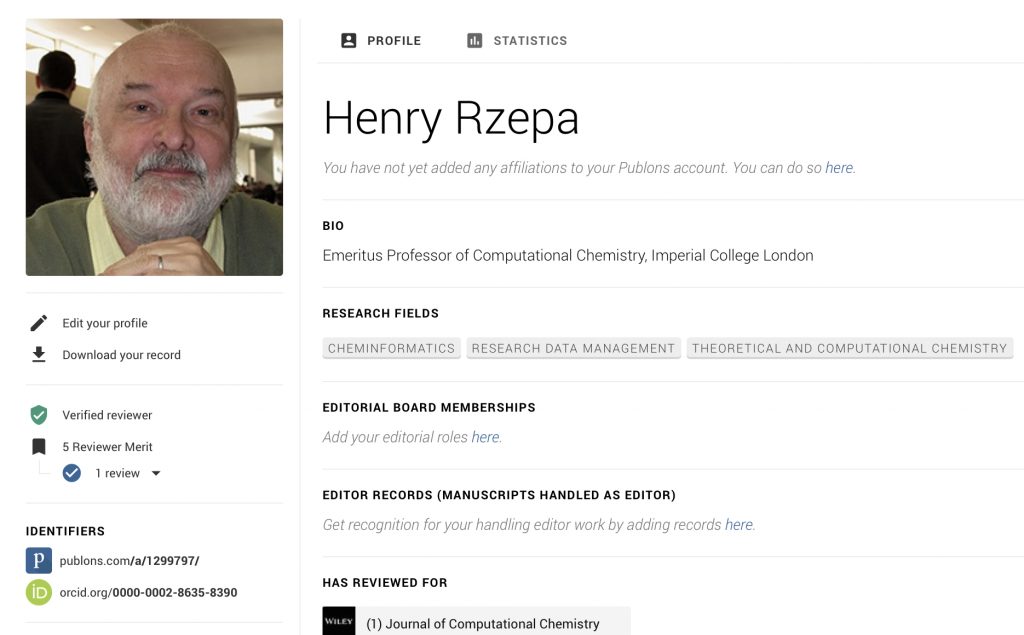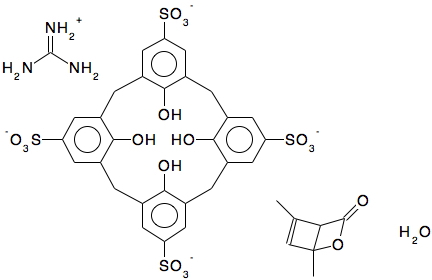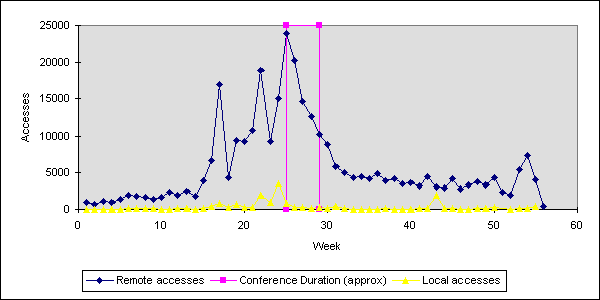The conventional procedures for reporting analysis or new results in science is to compose an “article”, augment that perhaps with “supporting information” or “SI”, submit to a journal which undertakes peer review, with revision as necessary for acceptance and finally publication. If errors in the original are later identified, a separate corrigendum can be submitted to the same journal, although this is relatively rare.
Rogue Scholar Beiträge

We have heard a lot about OA or Open Access (of journal articles) in the last five years, often in association with the APC (Article Processing Charge) model of funding such OA availability. Rather less discussed is how the model of the peer review of these articles might also evolve into an Open environment. Here I muse about two experiences I had recently.

The title here is taken from a presentation made by Ian Bruno from CCDC at the recent conference on Open Science. It also addresses the theme here of the issues that might arise in assigning identifiers for any given molecule.

Research data (and its management) is rapidly emerging as a focal point for the development of research dissemination practices.

In an era when alternative facts and fake news afflict us, the provenance of scientific data becomes ever more important. Especially if that data is available as open access and exploitable by others for both valid scientific reasons but potentially also by those with other motives.

Another conference, a Cambridge satellite meeting of OpenCon, and I quote here its mission: “OpenCon is a platform for the next generation to learn about Open Access, Open Education, and Open Data, develop critical skills, and catalyze action toward a more open system of research and education” targeted at students and early career academic professionals. But they do allow a few “late career” professionals to attend as well!
This week the ACS announced its intention to establish a “ ChemRxiv preprint server to promote early research sharing “. This was first tried quite a few years ago, following the example of especially the physicists. As I recollect the experiment lasted about a year, attracted few submissions and even fewer of high quality.
The university sector in the UK has quality inspections of its research outputs conducted every seven years, going by the name of REF or Research Excellence Framework. The next one is due around 2020, and already preparations are under way! Here I describe how I have interpreted one of its strictures;
Blogging in chemistry remains something of a niche activity, albeit with a variety of different styles. The most common is commentary or opinion on the scientific literature or conferencing, serving to highlight what their author considers interesting or important developments. There are even metajournals that aggregate such commentaries. The question therefore occasionally arises;

I reminisced about the wonderfully naive but exciting Web-period of 1993-1994. This introduced the server-log analysis to us for the first time, and hits-on-a-web-pag e. One of our first attempts at crowd-sourcing and analysis was to run an electronic conference in heterocyclic chemistry and to look at how the attendees visited the individual posters and presentations by analysing the server logs.